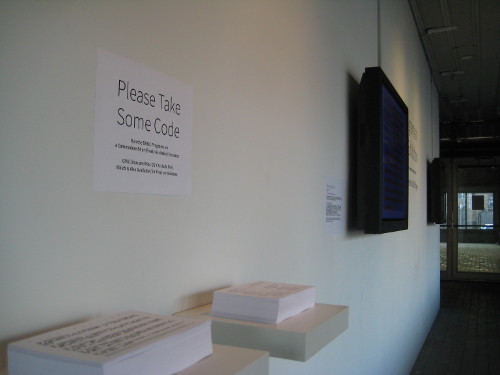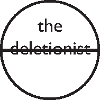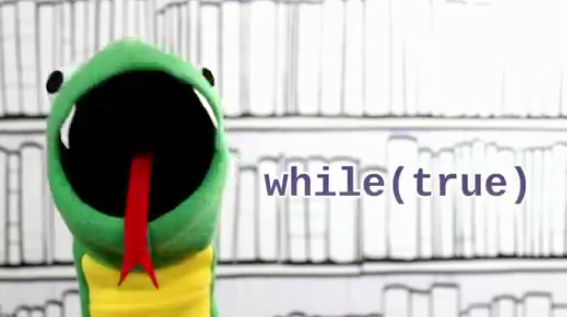Photos from “Programs at an Exhibition”
Here’s some documentation of “Programs at an Exhibition” by Nick Montfort & Páll Thayer, an exhibit of five Commodore 64 BASIC programs and five Perl programs at the Boston Cyberarts Gallery, March 6-16, 2014.

The front of the gallery hosts a Commodore 64 running Nick Montfort’s “After Jasper Johns” (left) and an Intel/Ubuntu computer running Páll Thayer’s “Flag” (right). These two pieces respond to and rework the famous 1954 painting, Flag, which is in the collection of the MoMA. Jasper Johns, we salute you.








